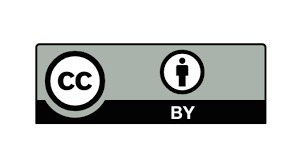Inteligencias múltiples y estilos de aprendizaje, su relación con el rendimiento académico de estudiantes en estadística
Inteligencias múltiples y estilos de aprendizaje, su relación con el rendimiento académico de estudiantes en estadística
Main Article Content
The present research was carried out with the purpose of determining the relationship between multiple intelligences, learning styles and academic performance of statistical students of the Cúcuta High School of Public Administration. The above in search of implementing actions to improve students' learning of statistics, and, of course, the competencies in this discipline. A quantitative correlational study was performed in a sample of twenty three students. The results show associations between learning styles and their performance, although it does not exist Significant relationship between the type of intelligence and performance in these students. The methodology implemented allowed the development of competencies by establishing roles according to the type of intelligence of the young students.
Downloads
Article Details
ARMSTRONG, Thomas. Las inteligencias múltiples en el aula. Manantial.1999
BORSANI, María José́. Adecuaciones curriculares. Novedades Educativas. 2001
CRESPO ALLENDE, Nina. Inteligencias múltiples y Aprendizajes Escolares.http://rehue.csociales.uchile.cl/rehuehome/facultad/publicaciones/Talon/talon5/
CRESPO ALLENDE, Nina. Tesis Doctoral en Lingüística Aplicada. Universidad de Chile, Facultad de Ciencias Sociales
GARDNER, Howard. Estructuras de la mente. Fondo de Cultura económica. México.1994.
GARBANZO, G (2007). Factores asociados al rendimiento académico en estudiantes universitarios, una reflexión desde la calidad de la educación superior pública. En: Revista Educación 31(1), p.44
HUERTAS DÍAZ, O. (2013). Política criminal del Estado colombiano y los derechos de las personas privadas de la libertad: Análisis legislativo y jurisprudencial Corte Constitucional. Revista Logos Ciencia & Tecnología, 5(1), 51-62. doi:http://dx.doi.org/10.22335/rlct.v5i1.6
INEE (2008). PISA en el aula: lectura. México.de Educación, Facultad de Ciencias Sociales. Universidad de Chile.
LUPIAÑEZ, Miguel. Inteligencias Múltiples y desarrollo personal. Raczynski, D. y Muñoz, G. (2005). Efectividad escolar y cambio educativo en condiciones de pobreza en Chile. Gobierno de Chile, Ministerio de Educación, Santiago: Maval Ltda.
ROMÁN, M & MURILLO, F (2011). América Latina: violencia entre estudiantes y desempeño escolar. En: Revista CEPAL 104 (agosto, 2011) Consultado el 9 de Abril de 2012.







